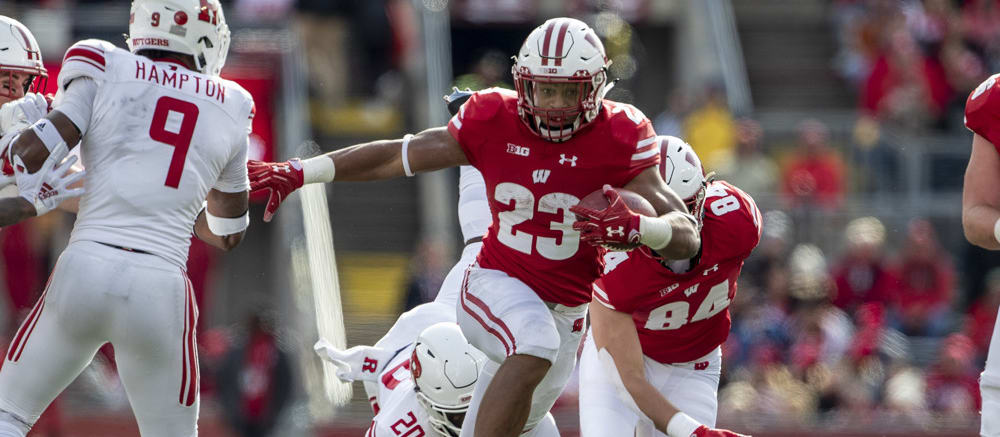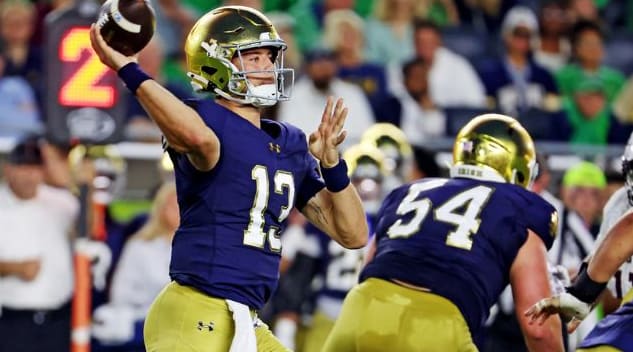The 2019 season is fast approaching, so we're rolling out our position-by-position previews to get you acclimated with the game's top players and help you dominate your drafts. Next up is running back, where Jonathan Taylor headlines a loaded crop. Some players, like Kylin Hill and Salvon Ahmed, have flashed immense upside and are now ready to take on starting roles for their respective teams. Others, like AJ Dillon, Spencer Brown, and Zach Moss, are established starters that offer bankable production. And then there are wildcards like LSU's John Emery, a true freshman with elite talent and a path to a featured role if things break the right way. Without further adieu, let's jump into this year's top running back landscape.
Editor's Note: The following article also appears in Rotowire's annual Fantasy Football Magazine, coming to newsstands in July of 2019.
1. Jonathan Taylor /  Wisconsin / Junior
Wisconsin / Junior
Through two seasons Taylor finds himself 103rd on the NCAA's all-time rushing list with 4,171 yards, and if he maintains his current pace, he could vault into the top five all-time by the end of this season. Taylor is the ideal fantasy asset at running back; he has the build to take on the heaviest workload in the nation and plays in an offense that is routinely among the most run-heavy. His track speed led to seven of his 16 touchdowns coming from outside the red zone, too. Taylor is the clear top fantasy running back.
2. Eno Benjamin /  Arizona
Arizona
The 2019 season is fast approaching, so we're rolling out our position-by-position previews to get you acclimated with the game's top players and help you dominate your drafts. Next up is running back, where Jonathan Taylor headlines a loaded crop. Some players, like Kylin Hill and Salvon Ahmed, have flashed immense upside and are now ready to take on starting roles for their respective teams. Others, like AJ Dillon, Spencer Brown, and Zach Moss, are established starters that offer bankable production. And then there are wildcards like LSU's John Emery, a true freshman with elite talent and a path to a featured role if things break the right way. Without further adieu, let's jump into this year's top running back landscape.
Editor's Note: The following article also appears in Rotowire's annual Fantasy Football Magazine, coming to newsstands in July of 2019.
1. Jonathan Taylor /  Wisconsin / Junior
Wisconsin / Junior
Through two seasons Taylor finds himself 103rd on the NCAA's all-time rushing list with 4,171 yards, and if he maintains his current pace, he could vault into the top five all-time by the end of this season. Taylor is the ideal fantasy asset at running back; he has the build to take on the heaviest workload in the nation and plays in an offense that is routinely among the most run-heavy. His track speed led to seven of his 16 touchdowns coming from outside the red zone, too. Taylor is the clear top fantasy running back.
2. Eno Benjamin /  Arizona State / Junior
Arizona State / Junior
One of the breakout stars of 2018, Benjamin enters 2019 with lofty expectations after posting the third-most rushing yards in the nation with 1,524 to go with 15 touchdowns. Benjamin possesses strong burst and open field agility that make him a strong big-play threat, as evidenced by his 14 rushes of at least 20 yards last season. His workload projection is ironclad, too; only Wisconsin's Jonathan Taylor had more carries among returning running backs. Benjamin's combination of skill and hefty workload make him an elite fantasy option with both a high floor and a high ceiling.
3. AJ Dillon/  Boston College /Junior
Boston College /Junior
An ankle injury slowed Dillon from the fifth game onward last year, causing heavy regression from the high bar Dillon set as a true freshman in 2017. Dillon stampeded his way to 1,589 yards and 14 touchdowns that year, but through his ankle issue he could only muster 1,108 yards and 10 touchdowns in 2018. He does little as a receiver but Dillon is imposing when healthy, as at a listed 6-feet, 245 pounds he shows the explosiveness and balance of a runner 30 pounds lighter. He isn't as bulky as his weight implies, and he therefore sacrifices surprisingly little quickness for the immense strength he otherwise shows.
4. Travis Etienne /  Clemson / Junior
Clemson / Junior
The Heisman candidate led the nation in rushing touchdowns with 24 last season and had the second-highest YPC of any back with at least 150 carries. There's little reason to expect much of a decline in 2019, either. Clemson's passing attack will prevent Etienne from facing loaded fronts, not that Etienne needs much help anyway. The only concern with Etienne is workload; he ranked 75th in attempts per game and could see limited usage late in games this season if Clemson dominates as anticipated. Even if that holds true, Etienne will still be the top big-play threat in the nation.
5. Patrick Taylor Jr. /  Memphis / Senior
Memphis / Senior
Memphis is replacing Darrell Henderson but won't need to look far for its new workhorse in Taylor, who is coming off a 1,000-yard season of his own to go with 16 touchdowns. Taylor is a big back at 6-foot-3 and 223 pounds with burst that helped him rip off 10-or-more yards on 14 percent of his runs. Memphis is undergoing a scheme change of its own with offensive coordinator Kenny Dillingham heading to Auburn, but Taylor will still play a major role thanks to his own merits along with the lack of proven depth behind him.
6. Joshua Kelley/  UCLA/ R-Senior
UCLA/ R-Senior
A former walk-on, Kelley was the unlikely victor in a UCLA running backfield otherwise littered with underachieving former top recruits. His lacking pedigree aside, Kelley presents an encouraging profile at this point, as he shook off a slow start in 2018 to torch his remaining schedule for 1,216 yards (5.7 YPC) and 12 touchdowns in the final nine games – eight of them conference opponents in what was defensively a strong year for the Pac-12. It might be greedy to expect Kelley to carry over that rate of production into 2019 since it was buoyed by a 40-carry, 289-yard game against USC, but he's clearly a top running back target.
7. Juwan Washington /  San Diego State / Senior
San Diego State / Senior
A midseason injury derailed what could've been a 1,000-yard season for Washington, who finished the year with 999 yards and an average of 111.0 yards per game and 10 touchdowns. San Diego State leans on the run game, having rushed at least 60 percent of the time each of the last four years, and Washington enters the year as the lead back. Chase Jasmin will command some of the rushing share, but Washington checking in as the starting running back of this offense makes him a top-tier fantasy commodity.
8. Michael Warren II /  Cincinnati / Junior
Cincinnati / Junior
Warren's breakout last season helped fuel the Bearcats' best season since 2009. He ran for 1329 yards and his 19 touchdowns ranked fourth in the nation. Warren also showed adeptness as a pass-catcher with 25 catches on 36 targets. Cincinnati returns much of its core, including quarterback Desmond Ridder, so there's a chance this offense takes another step forward in 2019 with Warren as the driving force. His combination of talent and ironclad role make him not only one of the AAC's top backs, but one of the nation's top backs.
9. D'Andre Swift /  Georgia / Junior
Georgia / Junior
Among returning running backs with more than 150 carries, only two other players -- Travis Etienne and Jonathan Taylor -- averaged more per carry than Swift's 6.7 YPC mark. Swift is not only explosive, but he plays in an offense that runs it 60.3 percent of the time, which ranked 18th in the nation in 2018. Elijah Holyfield's departure should open additional carries for Swift behind an elite offensive line with several future NFL prospects. Swift's 32 catches in 2018 round out his skills profile and bolsters his likelihood of finishing as one of college fantasy's top players.
10. Chuba Hubbard /  Oklahoma State / Sophomore
Oklahoma State / Sophomore
Justice Hill had the seventh-most rushing yards in Oklahoma State history, and while losing him to the NFL hurts, Hubbard gave Cowboys fans a glimpse of a bright future with an impressive freshman campaign. Hubbard averaged 6.0 yards per carry and was an impact player in the passing game with 22 catches on 28 targets. Now that Hill is gone, the runway is clear for Hubbard to take on a major workload in a Mike Gundy offense that may skew more towards the run due to a lack of a proven option at quarterback.
11. Spencer Brown /  UAB / Junior
UAB / Junior
Coming off back-to-back seasons of at least 250 carries and at least 1,200 yards and 10 touchdowns, Brown is one of college fantasy's most reliable commodities. Brown isn't overly explosive (4.5 YPC in 2018) but he is a bruiser who is tough for Conference-USA defenders to contain over the course of a game. He also has minimal competition for carries; Brown had a 44 percent rushing share last year while no other back had more than eight percent. Brown is a true workhorse in one of the nation's most run-heavy offenses, making him a legitimate RB1 for this season.
12. Ke'Shawn Vaughn / 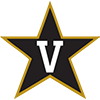 Vanderbilt / Senior
Vanderbilt / Senior
Vaughn erupted for 1,244 yards and 12 touchdowns on 7.9 YPC in his first season at Vanderbilt, establishing himself as one of college football's most explosive rushers in the process. 20.8 percent of his carries went for at least 10 yards and 7.6 percent of his runs went for over 20 yards; his 12 carries of 20-plus yards was tied for the fourth-most of any back with 160 or less carries. He'll be the focal point of the Vanderbilt offense with the upside to be a top-10 running back by season's end thanks to his elite burst and vision.
13. Max Borghi /  Washington State / Sophomore
Washington State / Sophomore
Borghi is ready to take on the starting job following James Williams' departure, and what he showed as a freshman in 2018 gives reason to believe he can be one of the PAC-12's best. He scored touchdowns on 11 percent of his carries while averaging 5.1 YPC and also showed the adeptness in the passing game --including 53 receptions on 68 targets -- that will keep him on the field in Mike Leach's offense. The rushing totals won't be gaudy but Borghi will be efficient and his pass-catching ability will make him a valuable commodity, especially in PPR formats.
14. Larry Rountree III /  Missouri / Junior
Missouri / Junior
Rountree finished fourth among SEC running backs in 2018, and that was while he was sharing carries with senior Damarea Crockett. Now that Crockett is gone, the runway is clear for Rountree to take on the lion's share of the backfield work for the Tigers. Having a running threat in Kelly Bryant at quarterback will keep defenses honest, and Rountree himself is a talented back with the build (5-10, 210) to withstand 200-plus carries once again. Look for Rountree to be among the leaders in carries, yards, and touchdowns in the SEC.
15. Kylin Hill / 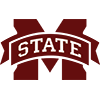 Mississippi State / Junior
Mississippi State / Junior
The Bulldogs had the third-highest run-play percentage in the SEC last season, and whether it's Keytaon Thompson or Tommy Stevens at quarterback, they'll be run-first again in 2019. This bodes well for Hill, who no longer has to compete for carries with Aeris Williams. Hill averaged 6.3 YPC and added 22 catches on 29 targets last season while posting eight total touchdowns. Coach Joe Morehead's emphasis on the quarterback in the run game cuts down on Hill's touchdown ceiling, but Hill offers a complete skill-set in a featured role on a run-first team, which makes him a strong RB2.
16. Salvon Ahmed /  Washington / Junior
Washington / Junior
Washington's all-time leading rusher, Myles Gaskin, is off to the NFL, leaving the backfield to Ahmed. Through two years, Ahmed has shown strong ability as both a runner and as a pass-catcher, highlighted by averaging 5.8 YPC in 2018 and catching 21 of 22 targets. Gaskin commanded 259 rushes last season, so while Ahmed may not see his workload ramp up to that level immediately, he still figures to push for 200 carries. And with the efficiency Ahmed has shown to this point, that volume of carries will result in strong production for the newly minted starter.
17. B.J. Emmons /  Florida Atlantic / Senior
Florida Atlantic / Senior
Devin Singletary is a tough act to follow, but Emmons is an intriguing player who has a chance to post major production after two years away from the FBS level. Emmons was a blue-chip Alabama recruit who brings a physical running style at 6-foot and 230 pounds. He's favored to start in an offense that ran the ball just under 60 percent of the time in 2018 and ranked 17th in tempo (77.5 plays per game). It's unfair to expect Singletary's production level, but Emmons should see similar usage and his pedigree suggests he'll have success within that role.
18. DeAndre Torrey /  North Texas / Junior
North Texas / Junior
North Texas has a number of talented runners, but Torrey established himself as the best of the bunch in 2018 with 977 yards and 15 rushing touchdowns on 175 carries. Torrey enters this year as the starter for a Mean Green offense that is looking to maintain its recent run of success despite losing star offensive coordinator Graham Harrell to USC. It's fair to expect a slight reduction in rushing share for Torrey as North Texas keeps Loren Easley and Nic Smith in the rotation, but there should still be more than enough work for Torrey to challenge for repeat production.
19. Zack Moss /  Utah / Senior
Utah / Senior
A knee injury cut Moss' junior season short, but not before he reached the 1,000-yard mark for the second straight year. Moss' status as the starter is secure provided that he is fully healthy for the start of the season. One potential pitfall to Moss' stock is a scheme change with Andy Ludwig bringing his low-tempo (67.2 plays per game) offense from Vanderbilt, though Ludwig has said that he plans on being more spread out with the Utes. Moss should still challenge for 1,000 yards and double-digit touchdowns, but the system could cap his ceiling.
20. John Emery /  LSU / Freshman
LSU / Freshman
There's some risk in putting this much stock in a player who hasn't played a down in college, but when it's a player of Emery's talent heading into a situation like LSU's, it's worth it. Emery is regarded as the second-best back in the 2019 class with a blend of power and explosiveness. The situation couldn't be better, either; 2018 leading rusher Nick Brossette is gone and Clyde Edwards-Helaire is a middling talent who averaged just 4.5 YPC. Emery is the most talented back on the roster and has a legitimate shot at setting the LSU freshman rushing record.
21. Darrynton Evans /  Appalachian State / Junior
Appalachian State / Junior
When Jalin Moore suffered a season-ending leg injury, Evans stepped up and averaged 117.8 yards per game over the final nine games of the season. He ripped off 6.6 yards per carry in that span and had nine total touchdowns. Two potential pitfalls with Evans come from a scheme change and the presence of quarterback Zac Thomas, who had 10 rushing scores in 2018. Even with Thomas vulturing the occasional touchdown and Marcus Williams having a role, Evans still profiles as the top rushing option on an Appalachian State team that is built around the run game.
22. J.K. Dobbins /  Ohio State / Junior
Ohio State / Junior
Dobbins took a minor step back from a rushing perspective last season, averaging just 4.6 yards per tote after posting a 7.2 average as a freshman in 2017. Some of that likely relates to a change in the offense with pro-style quarterback Dwayne Haskins barking out calls. With dual-threat signal-caller Justin Fields set to take the reins this season, the offense will likely resemble 2017 when J.T. Barrett was at the helm, which could benefit Dobbins again.
23. Elijah Mitchell /  Louisiana-Lafayette / Junior
Louisiana-Lafayette / Junior
From Week 6 through the end of the season, no running back averaged more points per game than Mitchell (26.4). He accomplished that on the strength of 11 rushing scores, three receiving scores, and a 7.57 YPC mark. What's more impressive is that he did that while splitting carries with Trey Ragas, who had 130 carries in that stretch compared to Mitchell's 93. Ragas will be back this season, but Mitchell has emphatically proven that he can supply consistent and strong production despite playing in a timeshare.
24. Jermar Jefferson /  Oregon State / Sophomore
Oregon State / Sophomore
It's difficult to recall many true freshman season as promising as Jefferson's last year, as he raced to 1,380 yards and 12 touchdowns (5.8 YPC) despite hitting the rookie wall a bit and enduring a hamstring tweak in October. He failed to score in the final six games, but that stretch contained some tough matchups and he still went over 100 yards three times. Now a sophomore, Jefferson should have the benefit of greater physical development to hopefully power through the second-half wall that slowed him as a true freshman. If he maintains his current trajectory, Jefferson should prove a dominant fantasy asset.
25. Benny LeMay /  Charlotte / Senior
Charlotte / Senior
What LeMay lacks in flash he makes up for in consistency. He took on 232 total carries as a junior and posted under 70 yards in a game just twice. LeMay also caught at least one pass in 11 of 12 games, demonstrating a steady three-down skill set. His team context is favorable as well; Charlotte ran the ball over 60 percent of the time in 2018 and is expected to be run-centric again this season. LeMay will be the focal point of the offense and even with his lack of explosiveness, he'll be a consistent contributor every week.
26. Anthony McFarland /  Maryland / R-Sophomore
Maryland / R-Sophomore
Despite McFarland's efficiency on the ground throughout the 2018 season, it wasn't until late in the season that he was truly used as a lead back. In the two weeks he went over 20 carries, McFarland produced a combined 508 yards and two touchdowns on 50 attempts (Indiana and Ohio State). Ty Johnson's graduation should clear McFarland's path to a workhorse role in 2019, though his struggles in the red zone last season (seven yards on nine carries) could lead to vultured touchdowns around the goal line.
27. Jarret Patterson /  Buffalo / Sophomore
Buffalo / Sophomore
Patterson finished fifth in the MAC in yards per game (72.36) despite seeing minimal carries the first five weeks of the season. His 14 touchdowns also ranked third in the and he showed explosiveness as well with 10 of his 183 rushes going for 20-or-more yards. He enters 2019 as the focal point of an offense that is replacing its starting quarterback and top two receivers that had a 60 percent target share. Patterson and Kevin Marks make up the MAC's best backfield tandem and both will have viable production, but Patterson is the back to own.
28. Brenden Knox /  Marshall / Sophomore
Marshall / Sophomore
Knox flourished down the stretch as a freshman, averaging 115 yards over his last five games and posting four touchdowns in that span. He enters this season as the favorite to start over Tyler King, who is talented but has had durability issues and at 6-foot and 190 pounds, is not built to be a true workhorse like the 223-pound Knox. Marshall tends to rotate several running backs when possible, but the current depth points to Knox taking on most of the carries while King plays a change-of-pace role. Knox will be a problem for Conference USA defenses all season.
29. Isaiah Bowser /  Northwestern / Sophomore
Northwestern / Sophomore
Bowser wore down defenses in the second half of games last season, leading the nation with 14.6 carries per game during the final 30 minutes. He churned out 521 yards and four touchdowns in his eight second-half appearances. Bowser doesn't possess the top-end speed to break off many long runs, but he grinds and managed a respectable 4.4 yards per carry last season. Bowser figures to see a hefty workload again in 2019 after securing the clear-cut top spot midway through 2018 and could be relied upon more with Clayton Thorson out of the picture.
30. Bryant Koback /  Toledo / Sophomore
Toledo / Sophomore
Koback entered the year buried on the depth chart but managed to work his way into a lead role over some more experienced players and took advantage of the opportunity. His 14 rushing touchdowns tied for second among MAC running backs and his 5.99 YPC ranked fifth in the conference. Art Thompkins is gone, which leaves one less roadblock for Koback to contend with for carries. Koback will cede work to Shakif Seymour but is still expected to have the starting job for a Toledo offense that stands to be one of the best in the conference and perhaps the nation.
31. Reggie Corbin /  Illinois / Junior
Illinois / Junior
The speedy Corbin joined a fairly exclusive 1,000-yard rushing club last season, becoming the first Illini running back to reach the mark since Mikel Leshoure back in 2010. His season becomes even more impressive when considering the rushing attack accounted for 59.7 percent of the team's offense last season, thanks to a lack of reliable passing attack. Corbin worked extremely efficiently, averaging 8.48 yards per carry, and added another 176 yards as a receiver out of the backfield. Without a clear upgrade at quarterback, Corbin should be heavily relied upon again in 2019.
32. Greg McCrae/ 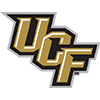 Central Florida / Junior
Central Florida / Junior
The UCF offense is loaded with playmaking threats aside from McCrae, and there's only so much workload he can handle at a listed 175 pounds, but when McCrae does get the ball explosive outcomes are all but assured. Buoyed largely by a 24-carry, 206-yard game against Memphis, McCray finished his sophomore 2018 season with 1,182 yards and 10 touchdowns on just 133 carries. McCray's escalated usage in the second half (90 carries in final six games) portends a bigger 2019 workload, which should occur at little or no expense to his rushing efficiency (8.9 yards per carry).
33. J.J. Taylor/  Arizona / Senior
Arizona / Senior
Taylor would ideally show better ball security (seven fumbles in 2018), but other than that he's very clearly one of the most uniquely explosive runners in college football, and a likely top asset in college fantasy football. He took 255 carries for 1,434 yards (5.6 YPC) and six touchdowns last year, and normally a from-scrimmage threat of that caliber will stumble into touchdowns at a higher rate than that. As much as his touchdown rate may have been unlucky in 2018, it might be worth keeping in mind a potential regression in rush attempts given his diminutive frame (5-foot-6, 184 pounds).
34. C.J. Verdell /  Oregon / Sophomore
Oregon / Sophomore
Oregon has constructed an SEC-sized offensive line that will maul PAC-12 defenses, and it returns every starter from 2018. Verdell ran for 1,018 yards and 10 scores in his first season and reeled in 27 of 34 targets, showing a complete skill set. Oregon has the running back depth to make it unnecessary to overuse Verdell, but even if Verdell sees a workload similar to his 188 rushes from last season, that's still enough to make him a fringe top-30 fantasy running back. Troy Dye will also be a viable option in the Oregon backfield.
35. Andrew Van Buren / 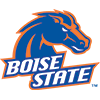 Boise State / Sophomore
Boise State / Sophomore
Boise State has produced a 1,000-yard rusher in 10 straight seasons, and with Alexander Mattison off to the NFL, VanBuren is next in line to take over the Broncos' vaunted rushing attack. VanBuren's role becomes all the more important now that Boise State is moved on from four-year starting quarterback, Brett Rypien, which leaves Boise State with unproven options at quarterback. The 220-pound VanBuren showed promise in a limited sample last season with a 4.8 YPC and two touchdowns on 34 attempts. He's now set to thrive in what has become one of college football's most bankable roles.


